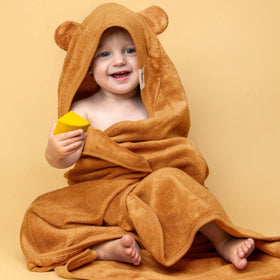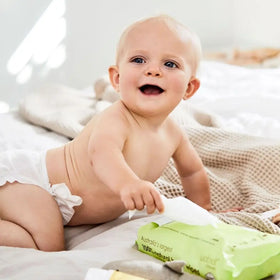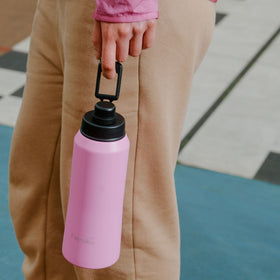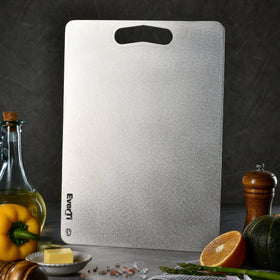
Successful Summer Toilet Training
The ideal age to start toilet training is around 2 years. When your toddler can recognise that he's got a full bladder and needs to go to the toilet, you'll find toilet training is much easier. And with summer peeking around the corner, even here in chilly Melbourne, it's the ideal time to start.

What makes the summer months so good for potty training?
- It's simpler! Your toddler isn't wearing as many clothes. Perhaps she's even in no clothes. There aren't as many layers to pull off, which makes getting to the toilet or potty in a hurry much easier.
- For the first couple of weeks, putting your toddler in nothing but a shirt or singlet and training pants can be a great way to get your toddler used to toilet training.
- Without layers of clothing, it's easier for your child to become aware of the feeling of needing to 'go'.
- Pant-less kids have more incentive to make it to the bathroom in time, seeing as their clothes aren't there to catch the mess.
- Running around in fewer clothes (or no clothes) is less restrictive and more fun. Relaxed, happy kids are more likely to become potty trained a lot faster as they're less likely to feel pressure.
- Toilet training can mean a lot more washing for you. Summer is much more practical for an upcoming increase in washing. You have less layers of clothes to wash and they dry fast, hygienically and much more cheaply outside in the sunshine. And hanging things on the line is much more more environmentally friendly, too.
How can you tell when your toddler is ready for toilet training?
- Your toddler has control of their bladder and bowel for 2 hours or more - this happens when toddlers are around 2 years old.
- They use and understand words for wee and poo.
- They're showing a desire for big kids underwear, or they tell you they don't like their nappy.
- Your toddler can pull their pants on and off.
- They're interested in others going to the toilet.
- Your toddler lets you know that he's done something in his nappy, or is about to. They may also be showing tell-tale signs of having just dirtied their nappy. Facial expressions, or stopping play and standing completely still, laying down in the 'change my nappy' position, or perhaps going to hide out of sight. All of these can be signs that they're linking the cause and effect of going to the toilet.
More tips for successful summer toilet training
- Give your child the tools to learn potty training when they begin to walk. You don't need to set an agenda or have a rewards chart. Just having a potty and perhaps a book for them to sit still for a few minutes may be enough for your child to take the initiative when they're ready.
- Some children are scared of the toilet. Having a potty, or a BPA free special sized toilet seat can help little ones conquer their fear of falling down the hole.
- Disposable nappies are designed to absorb moisture and for children to be more comfortable in their dirty nappy for longer. That's great when they're tiny, but not so great when you're toilet training. Cloth training pants or undies help toddlers become more aware of their dirty pants as soon as it happens. This awareness helps them to connect the cause and effect of going to the toilet.
- Don't turn accidents and misses into a big deal for your toddler. It adds pressure, and can make potty training take even longer. You may also see your toddler hiding or covering up their accidents so as not to disappoint you.
- Remember that toilet training doesn't happen overnight. In fact, toddlers are usually dry during the day well before they're dry at night.
- Your toddler may still be having accidents at night up until they're five, or even longer. To help, make it easy for them to get to the toilet at night. Leave a night light in the hall, and leave doors open. Use protective sheets on top of their mattress to make changing the sheets at night less disruptive for them and less work for you.
Lastly, have fun with toilet training! Praise your toddler when they successfully make it to the potty. Enjoy some bare bottomed summertime play in the back yard or garden. Sing a potty song. Remember - happy and relaxed children perform at their best.










